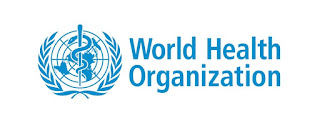WHO, ICNIRP; conflitto di interessi
22 giugno 2017, 10:37:05 PM
Nella importante rivista scientifica International Journal of Oncology Prof Lennart Hardell ha pubblicato una review a carattere 'storico' di critica al WHO perché non ha finora preso in considerazione la forte richiesta che viene dal mondo scientifico di revisione delle linee guida su salute e radiofrequenze.
In particolare addebita questa riluttanza alle profonde relazioni con l'ICNIRP e con le organizzazioni legate al mondo militare e all'industria elettrica e delle telecomunicazioni.
ICNIRP organizzazione non governativa, evidenzia profondi conflitti di interesse, continua a rifiutarsi di riconoscere gli effetti non termici delle RF
nell'incontro di Marzo 2017 in cui si è discusso delle forti critiche legate alla presenza di membri del Core Group per i campi elettromagnetici, a loro volta legati ad ICNIRP, WHO ha risposto che non hanno intenzione di rimuoverli.
vedere articolo
, June 21, 2017
WHO Radiofrequency Radiation Policy
- a hard nut to crack (Review)
Today the International Journal of Oncology published a critique of the World Health Organization's pending review of the adverse health effects of wireless (i.e., radio frequency or RF) radiation. The critique was written by Dr. Lennart Hardell, the world's preeminent researcher on brain tumor risk and long-term cell phone use.
His paper provides an historical overview of WHO's EMF Project, WHO's relationship to the International Commission on Non-Ionizing Radiation Protection (ICNIRP), and the relationships of both organizations to the military and electric and telecom industries.
Dr. Hardell notes that the WHO has relied heavily on members of ICNIRP, a non-governmental organization "with serious conflict of interest." In their reviews of the scientific evidence for adverse health effects from wireless radiation exposure, ICNIRP dismisses the evidence for biological effects due to non-thermal exposures. By focusing only on short-term heating effects and ignoring the effects of chronic exposure to non-thermal levels of RF radiation, ICNIRP has been able to adopt RF exposure guidelines about 300,000 times more permissive than otherwise would be required. RF exposure standards in many nations including the U.S. have been heavily influenced by these guidelines.
"The ICNIRP guidelines are of huge importance to the influential telecommunications, military and power industries."Dr. Hardell calls upon the public, NGOs, and the scientific community "to exert pressure on politicians to change the WHO agenda on RF radiation and health hazards and decide that WHO's purpose is to support world health instead of industry interests."
--
Lennart Hardell. World Health Organization, radiofrequency radiation and health - a hard nut to crack (Review). International Journal of Oncology. Published online June 21, 2017. https://doi.org/10.3892/ijo.20
Abstract
In May 2011 the International Agency for Research on Cancer (IARC) evaluated cancer risks from radiofrequency (RF) radiation. Human epidemiological studies gave evidence of increased risk for glioma and acoustic neuroma. RF radiation was classified as Group 2B, a possible human carcinogen. Further epidemiological, animal and mechanistic studies have strengthened the association. In spite of this, in most countries little or nothing has been done to reduce exposure and educate people on health hazards from RF radiation. On the contrary ambient levels have increased.
In 2014 the WHO launched a draft of a Monograph on RF fields and health for public comments. It turned out that five of the six members of the Core Group in charge of the draft are affiliated with International Commission on Non-Ionizing Radiation Protection (ICNIRP), an industry loyal NGO, and thus have a serious conflict of interest. Just as by ICNIRP, evaluation of non-thermal biological effects from RF radiation are dismissed as scientific evidence of adverse health effects in the Monograph. This has provoked many comments sent to the WHO. However, at a meeting on March 3, 2017 at the WHO Geneva office it was stated that the WHO has no intention to change the Core Group.
Open Access Paper: http://bit.ly/WHOhardell




Commenti
Posta un commento